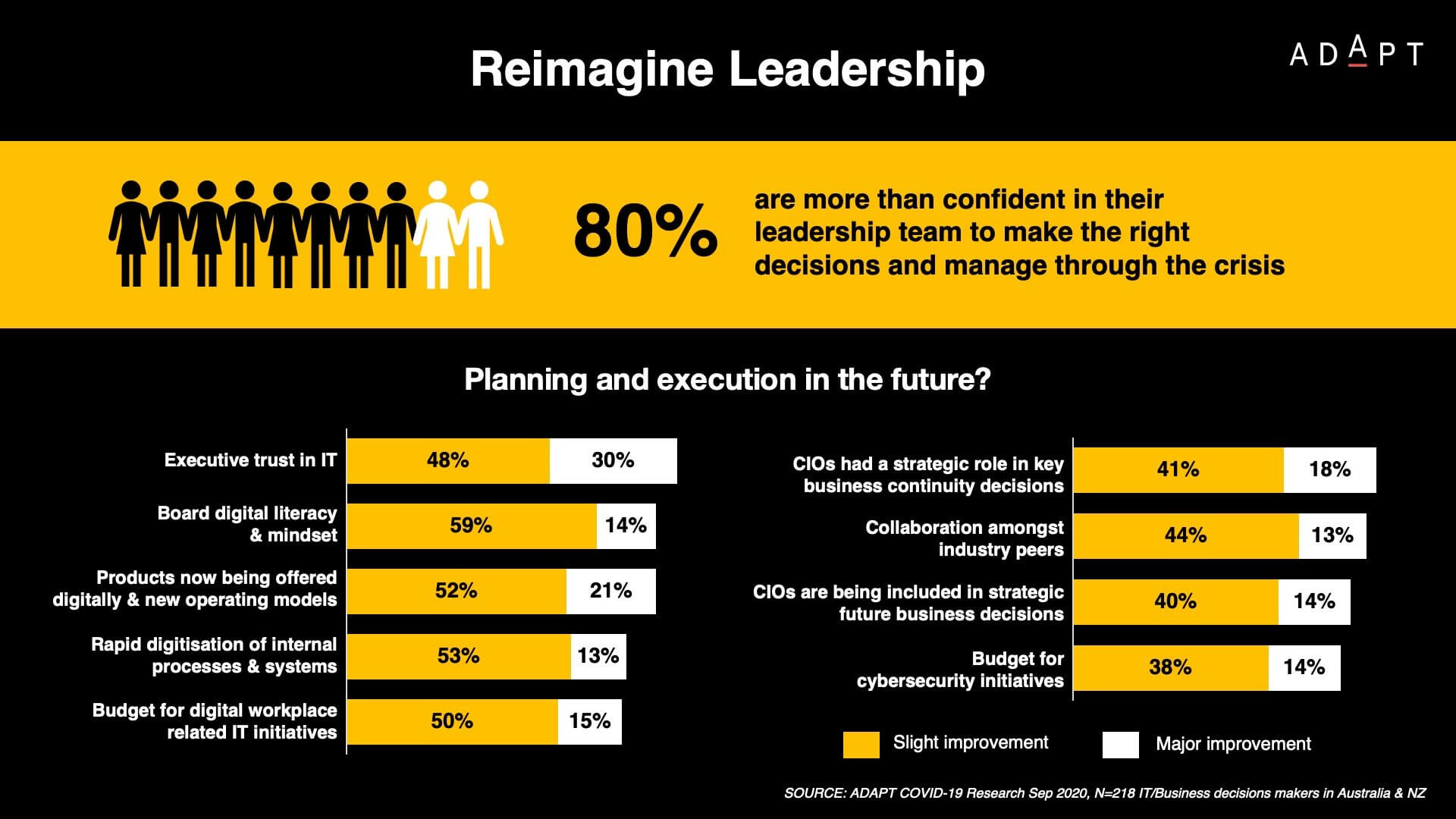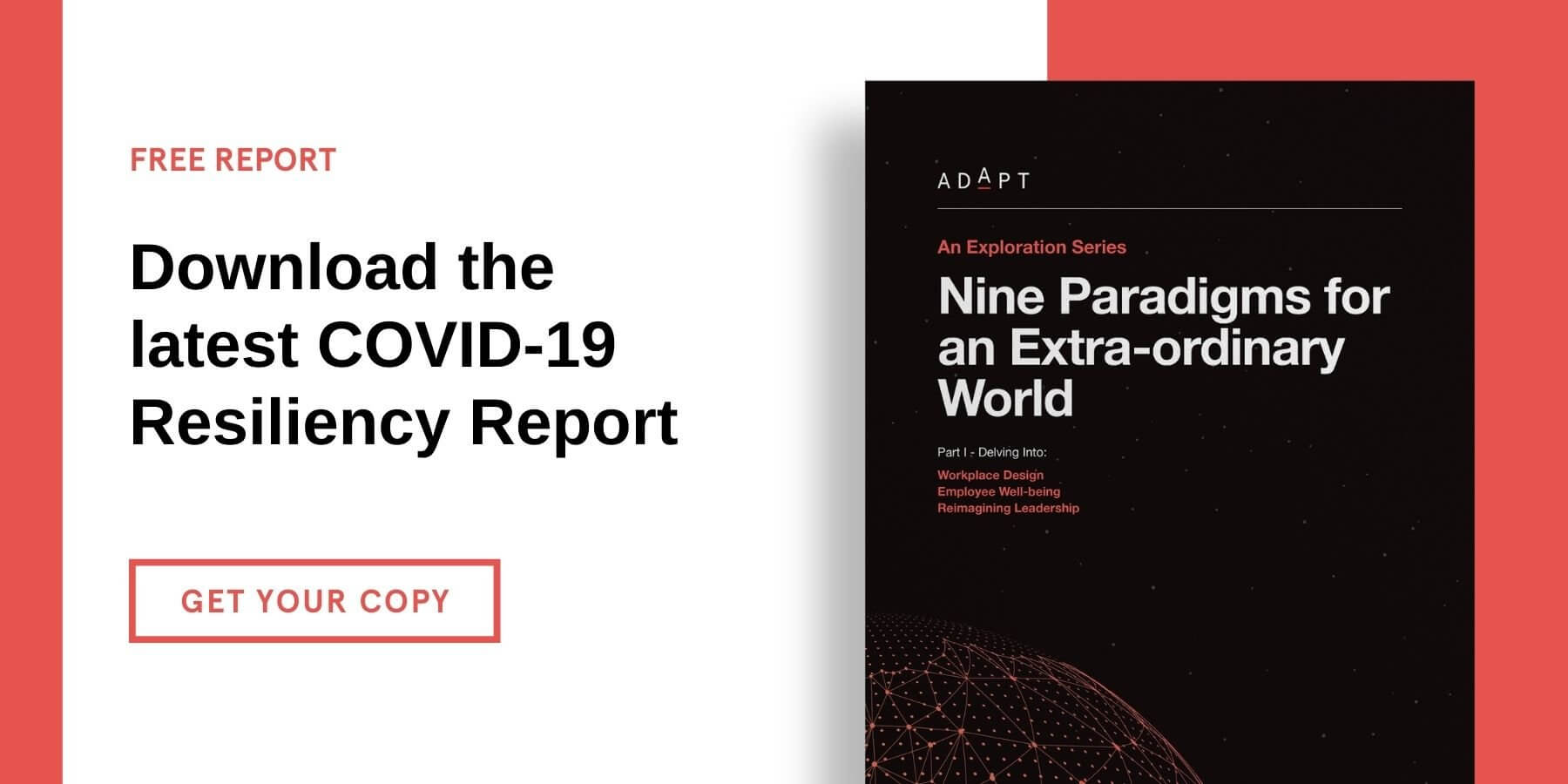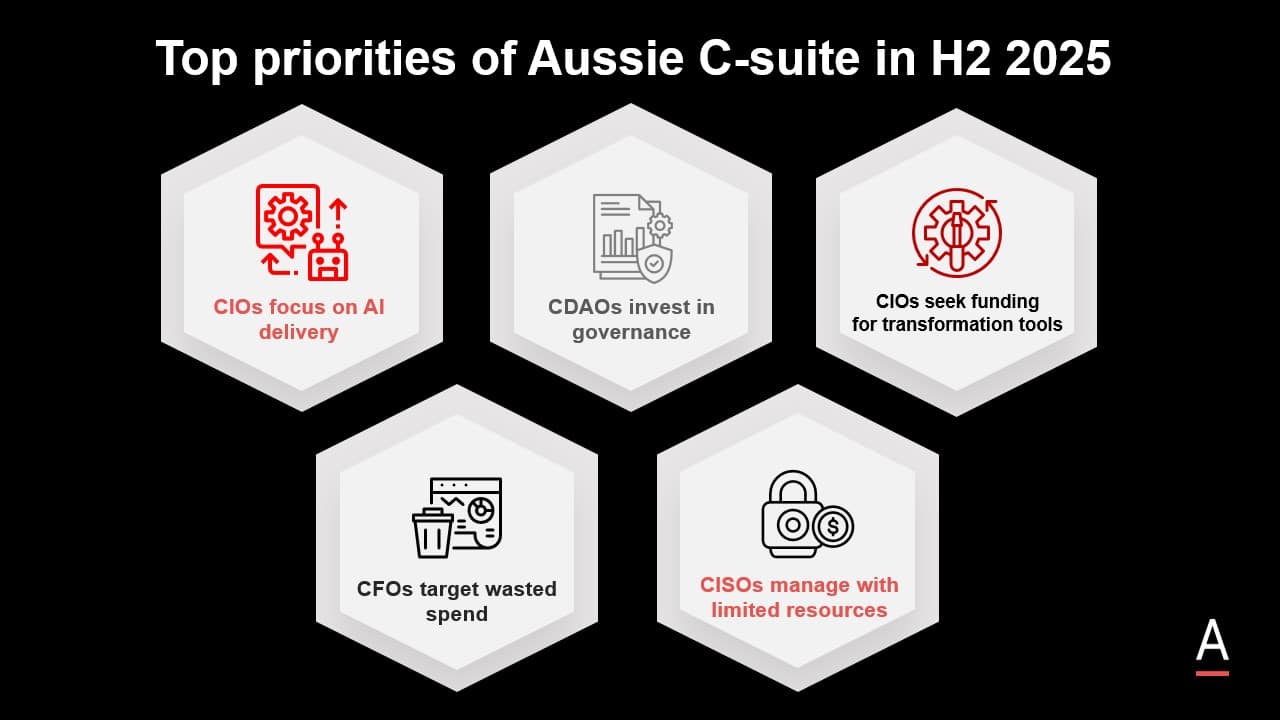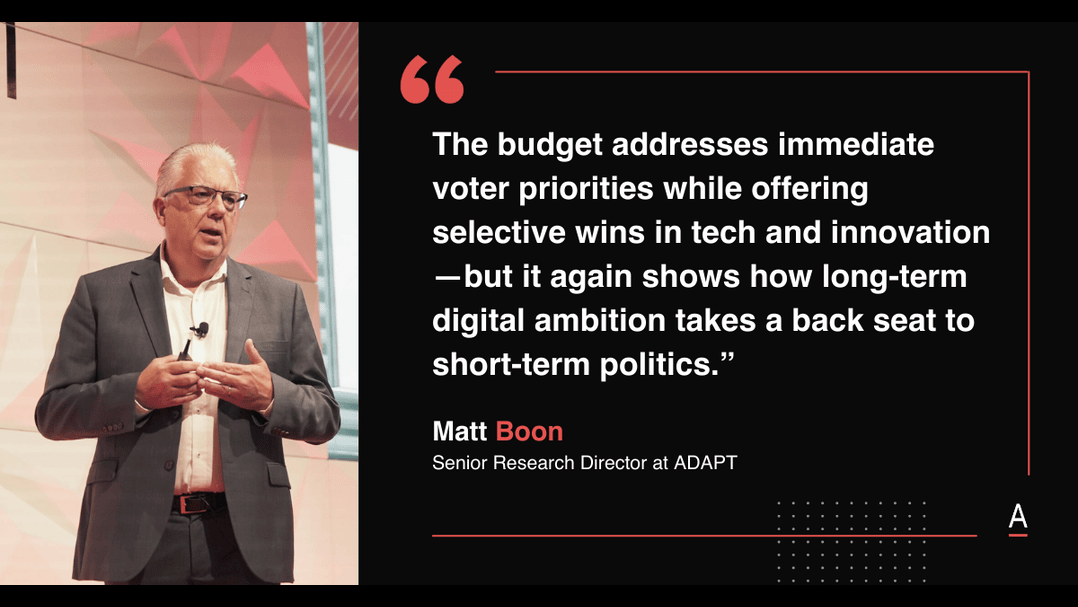What Must Technology Leaders Change in a Hybrid Workplace?
The role of any leader in the new environment will be to learn from peers, take more independent and bold decisions, and create resilient employees and organisational processes.
It is amazing how people come together in a crisis, and the bureaucracy in making decisions is shifted.” CIO – Big Four Australian Bank
ADAPT Advice
The role of any leader in the new environment will be to learn from peers, take more independent and bold decisions, and create resilient employees and organisational processes.
Considering the role technology has played in last six months, leadership’s trust in IT and the way people have adapted to change, the COVID-19 crisis must be considered as a ’Renaissance of the CIO and technology leaders‘.
CIOs must constantly monitor the level of autonomy they are currently given and ensure they continue to receive it in future.
For technology leaders to maintain their role as a strategic decision-maker, they must monitor the progress of IT initiatives and proactively help businesses understand the importance of the Cloud, data management and modern workplace applications embedded with security.
Redefining business will involve redefining partner ecosystems, hiring a flexible employee base that can be ramped up and cut back as needed.
It will also be imperative to redefine the internal operational processes and systems for a distributed business environment.
As we talk about what constitutes the new districted digital workplace, the Cloud will emerge as the new digital real estate and ’emerging technologies will act as a horizontal layer utilising the realigned technology stack’.
CIOs must work closely with their CISOs to refresh their cyber-security strategy to pre-empt and mitigate threats as well as shorten the time taken around attack notifications.
Reimagine Leadership
Although a lot will change within organisations in many different areas of business, the overarching transformation will be seen in leadership engagement, involvement, and styles. This includes the CEO and board level as well as among senior-level management teams.
In our quest to understand the biggest changes that came about during the lockdown, including the move to digital workplaces, we discovered that the crisis compelled many to willingly and openly give away authority and discretion to senior and mid-level managers in order to carry on business.

The three most significant changes that have taken place are around trust, distribution of authority and digital literacy.
- The confidence levels in leadership teams are at unprecedented levels, with 80% of businesses having confidence in their ability to lead and manage as the crisis continues.
- Executive trust in IT has vastly improved, as did the board’s digital literacy levels. This included board members having shareholder meetings online and organisations raising a virtual toast to an IPO.
- More than 50% believe that CIOs had a strategic role to play in business continuity decisions.
- More than 50% believe that CIOs are being included in future strategic decisions of the business.
The level of engagement across organisational business units and leadership teams has risen to new levels of collaboration as we finally have a single and unifying business challenge to overcome together.
We also see improvements across the board and an increase in perceived importance and understanding of digital and technology initiatives.
Before the pandemic, many levels of the C-Suite told us how they wanted to collaborate more with industry peers.
As a result, we have seen a 60% increase in C-Suite experiencing industry peer group collaboration.
Additionally, there is increased funding for projects related to ensuring digital workplace, digital business processes and cyber-security that will further build organisational resilience, securely, efficiently, and collaboratively.

The New World
2020 has forever changed the way businesses operate. As COVID-19 related conditions unfolded, employee safety took precedence over everything else, compelling organisations to create a distributed digital workplace within weeks. However, as they learned to live through the crisis, organisations realised the gaps in current business models, operational processes, technology infrastructure and emotional support required for their employees to work efficiently in the environment.
As we sail into the unchartered seas of 2021 with some of the biggest questions facing executives:
- What will the new workplace look like?
- How can we engage the workforce for a resilient future?
- What must change forever?
Since the beginning of April 2020, ADAPT has conducted two in-depth surveys to understand organisational response, resilience, and recovery strategies as we live through the pandemic. Both studies include over 220 executive leaders from the largest organisations across the country and discuss their continuing responses to ongoing challenges.
The latest survey, conducted in August and late September, uncovered key findings that address some of the above questions and highlight some of the most important paradigms of the new world.
At ADAPT, we have defined ’Nine paradigms for an extra- ordinary world’, but for this report, we only will delve into three – Workplace Design, Employee Well-being, and Reimagining Leadership.
We only have a semblance of what the new world will look like, but we can see that it will be bigger than the individual, organisations and economies. Even though we can only work with what we know today and the acknowledgement that it will change tomorrow, organisations still have the power and authority to create the new world rather than waiting for time to unfold it.
ADAPT’s nine paradigms will help you build a crucial resilience that will set the new foundations for your business, processes, people, and systems. In coming months, we will be revealing more statistics about the other areas within the nine paradigms for our community and businesses. Together, the nine provide a framework for creating a COVID-normal environment that will persist into the post-COVID landscape and help stimulate continued growth.

























